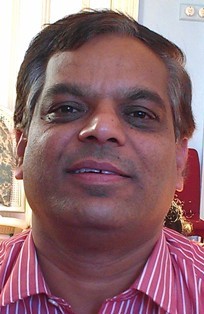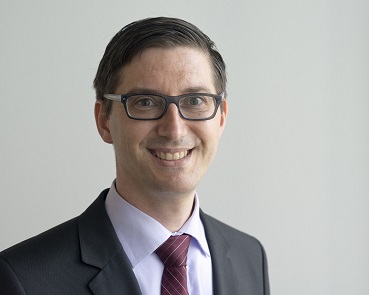The International Workshop on Big Data in Emergent Distributed Environments (BiDEDE 2022)
In conjunction with ACM SIGMOD 2022
Program Committee
Our members of the Program Committee are coming from all around the world!
Big Data in Emergent Distributed Environments
Do you want to know why we believe that Big Data in Emergent Distributed Environments is a hot topic in research?
Types of Papers
We accept six types of papers
- Research Papers
- System Papers
- Experiments and Analysis Papers
- Application Papers
- Vision Papers
- Demo Papers
Topics of Interest
We are interested in submissions in any topic related to Big Data in Emergent Distributed Environments...

 Dr. Rajkumar Buyya is a Redmond Barry Distinguished Professor and Director of the Cloud Computing and Distributed Systems (CLOUDS) Laboratory at the University of Melbourne, Australia. He is also serving as the founding CEO of Manjrasoft, a spin-off company of the University, commercializing its innovations in Cloud Computing. He has authored over 850 publications and seven text books including "Mastering Cloud Computing" published by McGraw Hill, China Machine Press, and Morgan Kaufmann for Indian, Chinese and international markets respectively. Dr. Buyya is one of the highly cited authors in computer science and software engineering worldwide (h-index=152, g-index=332, and 122,300+ citations). Dr. Buyya is recognised as Web of Science "Highly Cited Researcher" for six consecutive years since 2016, IEEE Fellow, and Scopus Researcher of the Year 2017 with Excellence in Innovative Research Award by Elsevier. He has been recognised as the "Best of the World" twice for research fields (in Computing Systems in 2019 and Software Systems in 2021) as well as "Lifetime Achiever" and "Superstar of Research" in "Engineering and Computer Science" discipline twice (2019 and 2021) by the Australian Research Review. Recently, he received "Research Innovation Award" from IEEE Technical Committee on Services Computing and "Research Impact Award" from IEEE Technical Committee on Cloud Computing.
Dr. Rajkumar Buyya is a Redmond Barry Distinguished Professor and Director of the Cloud Computing and Distributed Systems (CLOUDS) Laboratory at the University of Melbourne, Australia. He is also serving as the founding CEO of Manjrasoft, a spin-off company of the University, commercializing its innovations in Cloud Computing. He has authored over 850 publications and seven text books including "Mastering Cloud Computing" published by McGraw Hill, China Machine Press, and Morgan Kaufmann for Indian, Chinese and international markets respectively. Dr. Buyya is one of the highly cited authors in computer science and software engineering worldwide (h-index=152, g-index=332, and 122,300+ citations). Dr. Buyya is recognised as Web of Science "Highly Cited Researcher" for six consecutive years since 2016, IEEE Fellow, and Scopus Researcher of the Year 2017 with Excellence in Innovative Research Award by Elsevier. He has been recognised as the "Best of the World" twice for research fields (in Computing Systems in 2019 and Software Systems in 2021) as well as "Lifetime Achiever" and "Superstar of Research" in "Engineering and Computer Science" discipline twice (2019 and 2021) by the Australian Research Review. Recently, he received "Research Innovation Award" from IEEE Technical Committee on Services Computing and "Research Impact Award" from IEEE Technical Committee on Cloud Computing.